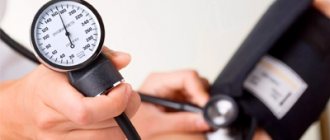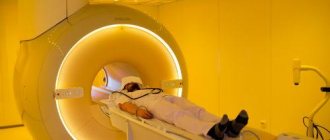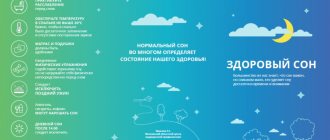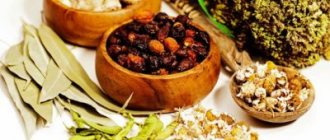Brain
The effect of caffeine on the blood vessels of the brain is specific - when ingested, caffeine leads to their narrowing. Along with the vasoconstrictor effect, caffeine also has other effects:
- accelerates metabolism locally
- stabilizes the functioning of cortical and subcortical structures
- eliminates drowsiness
- increases performance
- improves the flow of nutrients and oxygen to the brain
Heart and coronary arteries
In small doses, caffeine is beneficial for heart health because it:
- normalizes blood circulation and muscle function, which reduces the likelihood of angina, atherosclerosis and heart attack
- increases the speed of movement of the excitation wave with a weakened pulse
- increases resistance to exercise by stabilizing blood flow
- increases the flow of oxygen and nutrients due to the expansion of coronary vessels
Kidneys
Caffeine dilates the blood vessels of the kidneys, has a pronounced diuretic effect, accelerates the evacuation of waste and toxins from the body. At the same time, the alkaloid removes calcium, the deficiency of which negatively affects the health of bones, teeth, and hair. This side effect is not dangerous for people who drink no more than 2 cups of coffee per day and eat properly. After an hour, the effect of caffeine on the kidneys weakens - the blood vessels gradually narrow.
People with kidney pathologies are not recommended to abuse coffee and other caffeine-containing drinks. This reduces the risk of complications and exacerbation of chronic diseases.
Arterial pressure
The dilating effect of caffeine on blood vessels ensures an increase in the vascular lumen, which leads to an increase in blood pressure in both hypertensive and hypotensive patients. Therefore, people with fluctuations in blood pressure are not recommended to abuse caffeine-containing drinks, as the hypertensive crisis increases.
After consumption, caffeine causes an increase in the lower and upper blood pressure by 5-12 mm. Hg Art., and the effect lasts up to 4 hours. And in people who regularly take caffeine in various forms, the increase in blood pressure is insignificant.
Combination of alcohol and caffeine
There is an opinion among the masses that coffee helps to avoid excessive intoxication, as well as quickly bring the drunk to the senses. Scientists have refuted this misconception. They also diagnosed significant harm that is caused to the body when these two drinks are combined.
Caffeine before drinking alcohol . If you drink a small cup of coffee half an hour before the holiday, the drink will not be superfluous at all. It will significantly reduce the harm from ethyl alcohol. A coffee drink taken before alcohol triggers the production of special enzymes in the liver that break down alcohol molecules.
Milk proteins coat the stomach, preventing ethanol from being quickly absorbed into the blood. Thanks to this, intoxication occurs more slowly.
Taking two drinks at the same time . The combination of caffeine and cognac can be considered classic. However, this can cause significant harm to the body. After all, they act on the body in completely different ways. Coffee stimulates the body, increases blood pressure, and constricts blood vessels. Alcohol helps calm the nervous system, lower blood pressure, dilate blood vessels, and relax.
The body begins to experience stress and high loads, as two completely opposite effects are exerted on it. This negatively affects the functioning of the heart, vascular and central nervous systems.
Coffee after alcohol . Many people believe that caffeine in any form can quickly sober up a person. Unfortunately, this is a myth that can lead to serious consequences. A cup of strong drink can give a person a deceptive feeling of sobriety. After which he can make wrong decisions, for example, get behind the wheel, go to dangerous work, and the like.
Consequences that can result from the simultaneous use of these two compounds with opposite effects:
- sudden increase in heart rate;
- formation of predisposition to atherosclerosis;
- development of tachycardia or arrhythmia;
- possible manifestations of hypotension and hypertension;
- increased stress on the heart muscle;
- excessive production of acids in the gastrointestinal tract, which can lead to the formation of ulcers, gastritis and other diseases;
- insomnia, anxiety, unreasonable fear;
- overexcitation of the central nervous system;
- formation of headaches.
Coffee for VSD
Vegetative-vascular dystonia is not included in the world classification of diseases. However, a large percentage of people suffer from sudden panic attacks, nervous panic, and internal tension. Many people try to find ways to get rid of panic attacks on their own.
For vegetative-vascular dystonia, it is advisable to exclude coffee from your diet. Scientists have found that the occurrence of panic attacks is provoked by stressful situations, as well as the use of invigorating drinks. Studies were conducted in which volunteers suffering from panic attacks drank 4 cups of strong coffee daily. After a few days, it was noticed that the people's condition worsened. The heart rate increased, the subjects were thrown into a cold sweat, there was not enough air, it was hard to breathe. When the amount of caffeine consumed was reduced, people's condition improved.
Doctors strongly advise stopping drinking coffee if you have VSD, but this should be done slowly and carefully. Any stress negatively affects people who suffer from panic attacks. It is necessary to reduce the number of cups of coffee you drink every day. You should not drink coffee on an empty stomach, together with some food: a sandwich, cookies. It is better to add cream, milk, a spoonful of sugar or honey to the drink.
Expert advice:
- It must be remembered that coffee is not the cause of VSD, but the drink can trigger an attack.
- It is necessary to limit the amount of drink consumed, or even better, completely eliminate it from the diet.
- During panic attacks, you should not take caffeinated drinks, so as not to aggravate the problem.
- If you feel well, you can drink a cup of weak latte or cappuccino during your second breakfast.
Dangerous trio
Smokers like to smoke a cigar or cigarette after drinking coffee with cognac or other alcohol. Many people don’t even think that in this way they are causing enormous harm to their health.
Load on the heart . The nicotine contained in cigarettes increases your heart rate. A significant load is placed on the muscle, arrhythmia intensifies, narrowed vessels begin to expand sharply, which can lead to their rupture.
Disturbances in the gastrointestinal tract . Under the influence of nicotine, the synthesis of bicarbonates is significantly reduced. The process of development of ulcers, ileitis, esophagitis, and biliary dyskinesia begins.
Damage and depletion of the central nervous system . Periodic, sharp jumps in blood pressure, significant stress on the heart and blood vessels lead to a weakening of the brain and central nervous system. Over time, severe headaches, irritability, depression, and apathy may develop. Sudden fainting may occur.
Is it possible to drink coffee if you have atherosclerosis?
First you need to understand what atherosclerosis is. This is a condition of blood vessels when atherosclerotic plaques form inside. The main causes of atherosclerosis are the following factors:
- increased blood clotting;
- damage to the walls of blood vessels;
- increase in lipoproteins in the blood.
Atherosclerosis can affect any organ, and this poses a serious danger to human life. In case of vascular atherosclerosis, doctors prescribe the patient a special diet that excludes the consumption of caffeine-containing drinks.
But there are small concessions. For example, people with grade 1 and 2 cerebral atherosclerosis, provided that their blood pressure is normal, are allowed to drink 1-2 cups of instant coffee with added milk per day. At the same time, you need to monitor your well-being: if it worsens after drinking the drink, it should be excluded from the diet.
Vascular indications for use
Under the influence of coffee, some blood vessels dilate, but others contract. So in what cases can you drink it?
This product is recommended for use in the following situations:
- low blood pressure;
- weakened pulse;
- periodic swelling of the feet due to problems with blood circulation;
- frequent headaches and migraines;
- deterioration in performance;
- increased fatigue;
- painful menstruation.
To prevent complications, before recommending this drink, the doctor must conduct a diagnosis and exclude the presence of pathologies that require drug treatment.
Effect on blood pressure
Since the drink has a dilating effect on blood vessels, immediately after drinking it, the pressure increases in both hypertensive and hypotensive patients. That is why patients suffering from high blood pressure are not recommended to abuse the drink, as this can cause a hypertensive crisis.
Failure to follow this recommendation often leads to headaches and increased stress on blood vessels.
Patients suffering from vascular pathologies need to know that the drink increases upper blood pressure by 5-12 mmHg. Art., and the lower one - by 5-6 mm Hg. Art. The effect lasts for 3-4 hours.
If a person regularly drinks large amounts of coffee and is “dependent” on the drink (and it can be addictive), then the increase in blood pressure will be insignificant or completely absent.
Is drinking coffee allowed for gastritis and ulcers?
During exacerbations, doctors strongly advise eliminating caffeine from the diet. It irritates the walls of the stomach, negatively affects the functioning of the gastrointestinal tract, and worsens a person’s well-being. If there is no exacerbation of the disease, you are allowed to drink coffee, but there are certain rules for its use.
- Drinking coffee on an empty stomach is strictly prohibited. A drink that is drunk on an empty stomach irritates the walls of the mucous membrane and increases acidity.
- Coffee should be at room temperature. A diet intended to treat gastritis and ulcers involves consuming drinks and food at a certain temperature. Hot foods and drinks negatively affect the stomach.
- It is advisable to exclude coffee from the diet, but doctors allow drinking a cup of weak drink with the addition of milk or cream.
- You should give up instant coffee. If it is impossible to do without coffee, it is advisable to give preference to natural beans.
You should completely avoid drinking coffee in the following cases:
- during exacerbation of the disease;
- in the presence of erosions on the walls of the stomach;
- for stomach ulcers;
- if after drinking a drink you experience pain in the stomach.
Vegetables and fruits
For people who already have cardiovascular disease, fruits and vegetables should make up 60% of the daily diet. Their use will be useful for everyone who wants to keep their veins and arteries clean and their heart muscle healthy.
- Pumpkin. Useful in any form: fresh, baked, stewed, boiled. The vegetable has a rich vitamin and mineral composition to strengthen the heart muscle, lowers cholesterol levels in the blood, removes toxins, and helps in the fight against excess weight. Seeds and pumpkin juice have no less benefits. Does not cause allergies and has no contraindications for use.
- Beetroot.Used boiled or raw. For patients with atherosclerosis it is a very important product. The vegetable cleanses and strengthens blood vessels, improves blood composition, lowers blood pressure, reduces swelling and helps in the fight against excess weight. For headaches and tinnitus, beet juice is recommended. To improve your condition, you need to take it for 14-28 days, preferably in combination with pumpkin or carrot.
- Garlic. When eaten regularly, it lowers blood pressure and blood sugar levels, prevents the formation of blood clots, and cleanses blood vessels from cholesterol plaques. After heat treatment, it does not lose its properties, and in combination with lemon, the benefits increase. For diseases of the gastrointestinal tract, for example, ulcers or gastritis, during breastfeeding, and for renal failure, garlic is contraindicated.
- Horseradish. The vitamins, minerals and essential oils included in the composition reduce blood pressure, improve metabolism, and cleanse the arteries. Contraindicated in pregnant and lactating women, with gastrointestinal diseases, kidney or liver pathologies.
- Lemon. You can eat it constantly; the vitamin C and essential oils it contains are useful for anyone. The product increases the elasticity of blood vessels, promotes the removal of toxins and the dissolution of accumulated cholesterol, and has a beneficial effect on the veins of the legs. Contraindicated for gastritis, pathologies of the pancreas, and a tendency to heartburn.
- Ginger. Rich in vitamins, minerals and essential oils. The root is designed to strengthen the heart muscle, prevent its thinning, and prevent thrombosis due to its ability to thin the blood. Ginger cleanses blood vessels from fat deposits, rejuvenates the body, and normalizes blood pressure. Not recommended for acute hypertension, angina pectoris, or after a stroke/heart attack.
Is instant coffee harmful to health?
To produce the soluble variety, cheap and often low-quality varieties of grains are used. Also, coffee dust, over-roasted beans and other waste from the production of the product can act as raw materials. The resulting composition is ground and treated with boiling water at high pressure. The mixture is then filtered and sprayed in special tanks. During this process, drops of the mixture freeze and transform into the usual soluble powder.
The product manufacturing technology includes a large number of manipulations that have a negative impact - all the beneficial substances of the grains are destroyed. To obtain a traditional taste and aroma, chicory, flavorings, dyes and other artificial stabilizers are added to the mixture.
Unlike most beneficial substances found in beans, caffeine is retained even after prolonged processing. Therefore, in an instant drink its content is much higher (80 g per cup) than in a brewed drink (60 mg per cup).
What is decaffeinated instant coffee made from?
Research conducted in the 2000s suggested that caffeine-free drinks are healthier than caffeine-containing drinks. Therefore, the demand for decaffeinated drinks has sharply arisen. According to the laws of economics, after demand arose, supply also appeared. The processing technology and specificity of the beans allows only green varieties to be decaffeinated. To remove this substance from the composition, treatment technology is used with a special solvent - ethyl acetate. You should know that this substance is used to make stains against insects and to produce artificial leather. Manufacturers guarantee that this substance does not remain on the grains, but many unscrupulous companies pay insufficient attention to this issue.
When choosing these types of product, you should remember:
- The substance is still present in the composition, since it cannot be completely removed.
- The composition may contain a chemical solvent.
- When taken without caffeine, the amount of free fatty acids in the blood may increase.
Can pregnant women drink coffee?
Expectant mothers are sensitive to their health, because during the gestation period they are responsible not only for their body, but also for the development of the unborn baby. Pregnant women exclude many foods from their diet, and coffee is often included in the list of prohibited drinks. But it’s so difficult to give up your favorite latte or espresso, because a cup of aromatic coffee is a real ritual that women quickly get used to. And if the expectant mother suffers from hypotension, feels weak in the morning, and has decreased performance, coffee seems to be the only salvation.
Doctors warn that drinking coffee during pregnancy can cause serious harm to the health of mother and baby. By the way, if you abuse the amount of coffee consumed during the planning period, this can lead to problems with conception. Caffeine also increases the tone of the uterus, which is the cause of early pregnancy termination. But don't worry, because this can only happen if the expectant mother consumes too much caffeine. A pregnant woman can afford a cup of aromatic drink, but it is advisable to add milk and drink coffee during the second breakfast.
Berries
For consumption, fresh berries are used, dried or frozen. To combat diseases of the arteries and veins, medicinal teas and preparations are made based on extracts from berries.
- Cranberry. Has an amazing vitamin and mineral composition. It has anti-inflammatory and antioxidant activity, regulates cholesterol levels, and thins the blood. Cranberries help strengthen the walls of arteries and veins, and the muscles of the heart. If you have serious stomach or liver problems, use with caution.
- Kalina. Able to reduce blood pressure and strengthen the heart. For preventive and therapeutic purposes, the color, bark and berries with seeds are used. If you are prone to hypotension or thrombosis, take with caution.
- Rowan. Strengthens blood vessels, reduces blood pressure. Medicines and tinctures are taken during the rehabilitation period after a heart attack. If you are prone to low blood pressure and thrombosis, use with caution.










